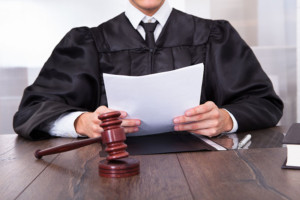One of the best tools the Securities Exchange Commission (SEC) has to help reduce fraudulent activities and protect investors is its Whistleblower Program, which provides a reward of 10%-30% of monies collected over $1 million recovered by a successful enforcement by the government. Individuals must bring the SEC information that proves relevant and useful to the SEC’s enforcement action. This program has approved over $1.2 billion in rewards to qualified whistleblowers during its very short lifespan. The Whistleblower Program was only implemented for the first time in 2011 and is based on what has made the False Claims Act so successful.
Recently, in April, the SEC issued two awards totaling around $250,000 to two whistleblowers who provided information that helped the SEC bring a successful enforcement action against an unnamed entity. Even though both whistleblowers provided relevant information, the award was distributed in a way where one whistleblower received around $160,000 and the other received $80,000. This highlights the importance of how the quality of information provided by the whistleblower is to the SEC plays a key role in determining award size. That is why in this case we see a massive difference in award size, with the whistleblower who provided the most important key evidence receiving double what the whistleblower with the lesser quality information received. This case is a prime example of why its important to provide as much information as possible when filing a case with the SEC Whistleblower Program. As we can see though, at the end of the day, any helpful information will most likely get you an award, even if it is smaller than awards given to other whistleblowers.
Do you have a valid claim?
If you witnessed any widespread suspicious activity within your workplace, you might have a chance of becoming a whistleblower by reporting an ongoing fraudulent scheme. However, to increase your chances of success, you must be sure to back up your claim with substantial evidence or privileged information.
A Quick Whistleblower Checklist
Is the fraudulent scheme widespread enough?
Has the fraud been perpetuated for years or involves large sums of money?
Do you possess any physical evidence of the fraud (documents, forged signatures)?
Do you have access to privileged information which may help our investigators?
Do you work as an insider within the company perpetrating the fraud?
Did you witness any ongoing illegal behavior within your workplace?
Have you been forced into taking part in any suspicious corporate activity?





